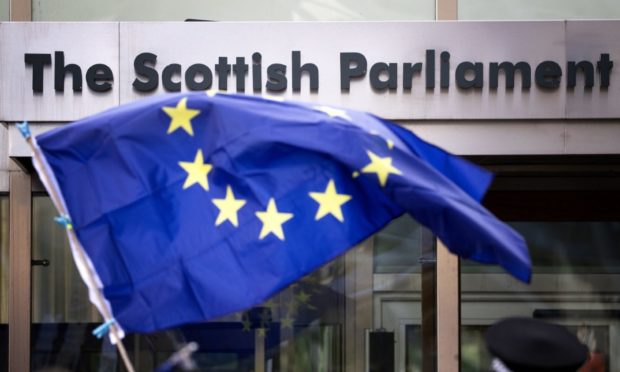The Scottish government is using devolved powers to secure the rights of EU nationals beyond the end of June, as new figures suggest thousands of Scottish residents are likely to miss a crucial Brexit deadline to continue legally living and working in the UK.
Under the terms of the Brexit Withdrawal Agreement, EU citizens in the UK have until the end of June to start the process of applying for their new settled status.
However a recent report from the independent research group UK In A Changing Europe suggests there could be hundreds of thousands of people who haven’t yet got on the first rung of the settled status ladder, in particular those over-65 and under-18.
It means that from 1st July those people will become undocumented, and lose their previously guaranteed rights to access the NHS, public sector housing, care services, and unemployment benefits: and the right to work or rent, among other consequences.
The Scottish government has asked the UK government to extend the deadline, citing the coronavirus pandemic, an apparent lack of widespread awareness of the scheme, and the consequences of not starting the application process in time, but Scotland’s Europe Minister Jenny Gilruth says those pleas have fallen on deaf ears.
“It’s a deafening silence from the UK government that there’s any issue here.”
“We don’t believe there even should be an EU settlement scheme, and of course Scotland didn’t vote to come out of the EU but we are where we are” says Gilruth, calling it a “deeply frustrating time” and branding the UK government “pig-headed” when it comes to Brexit.
Ensuring continued access to services
The Fife MSP has been working with local authorities to ensure that access to services continues for EU nationals in areas which are devolved to Holyrood such as healthcare, education and housing.
“I’ve been really clear with officials but equally as a government you can’t imagine that we would want to be associated in any way with [UK Home Secretary] Priti Patel or the UK government’s hostile environment” towards immigrants.
Ms Gilruth says she’s put in place protections to guarantee that no EU citizen will lose the health care access that they currently have, and says she’s working with local authorities on housing provisions to try and ensure nobody falls through the cracks there either.
“We also have to be realistic that there is only so much we can do and a number of the areas that this cuts across are reserved”
“With benefits for instance, we are pretty hamstrung in terms of what we can do there, unemployment legislation remains reserved and legally is quite difficult for us to offer protection, but we will do what we can to create that buffer to protect people.”

Large numbers likely to become undocumented
According to the latest Home Office figures more than 5.6 million EU nationals have already applied to start their settlement process – already a far bigger number than the 3.5 million EU citizens it was previously thought lived in the UK.
“Part of the problem is we don’t know how many people haven’t applied, because we don’t know what the total number of people is, because the government has never done any recording of those numbers” explains Professor Catherine Barnard, Professor of EU law and employment law at the University of Cambridge, and a senior fellow at UK In A Changing Europe.
“Certainly elderly and certainly the over 65s are not present in the statistics. The under 18s too, particularly those in care.
“The other group is migrant workers, and those who still don’t know they have to do something.”

Professor Barnard says there are likely to be significant numbers of people who are worried about authorities having access to their data because they come from countries where they would want to minimise all contact with the state; and evidence too that some people who have lived in the UK for a long simply consider it their home and don’t understand why they need to start a new process.
“There are also a bunch of people who just don’t have the language skills or the technology to actually get on and do it” explains Professor Barnard, and says itinerant jobs, lack of money, and distance from embassies in London can all be barriers to getting the right documents to begin the process – although she says that as a consequence of the Windrush scandal the UK government has tried to make the process as easy as possible, but that doesn’t mean it’s universally accessible.
Suggesting an easier system
Ms Gilruth says the UK government could have made everything easier still, by simply not having any process where people need to register at all.
Some EU countries, but not all, have adopted a system whereby British nationals living there get their Withdrawal Agreement rights conferred on them without having to make an application.
“If we had replaced it with a declarative system that essentially automatically gave EU citizens the right to retain their rights it would have been far preferable.”

